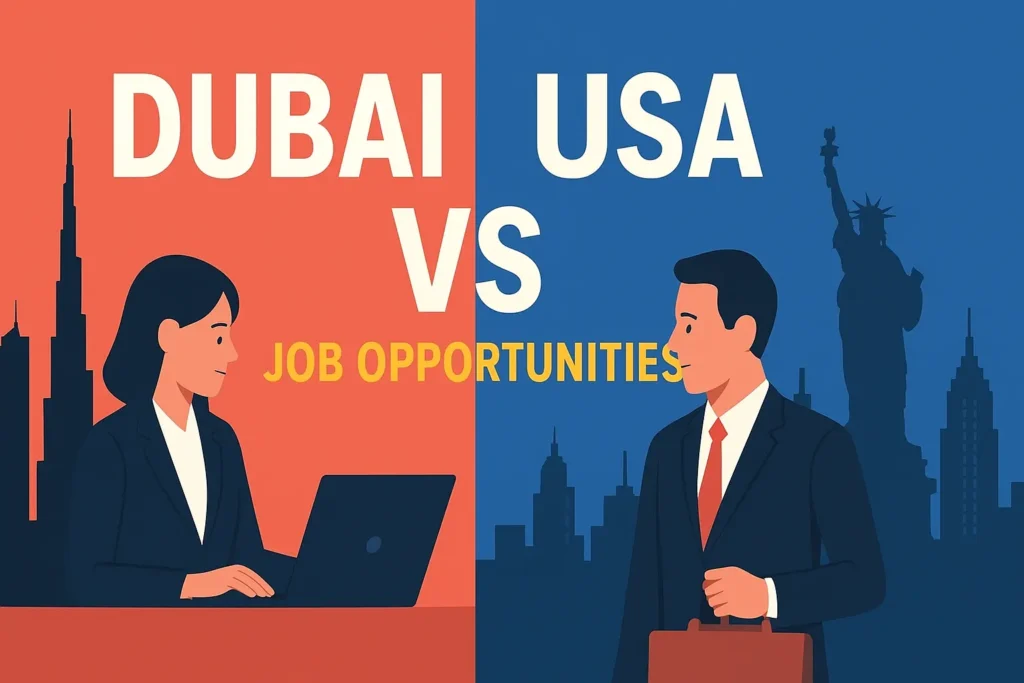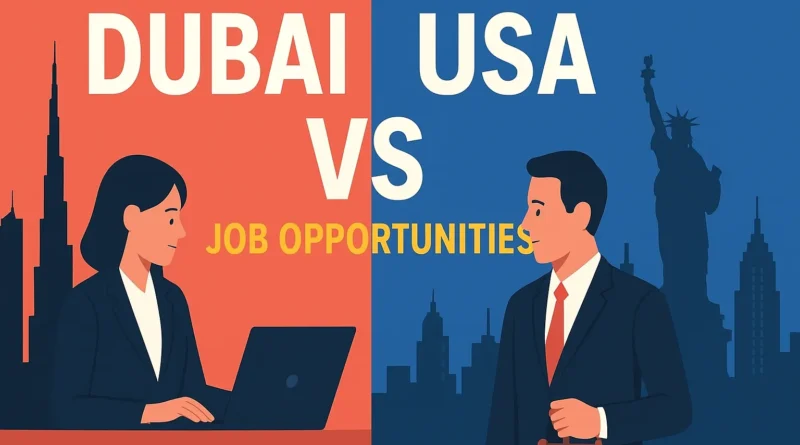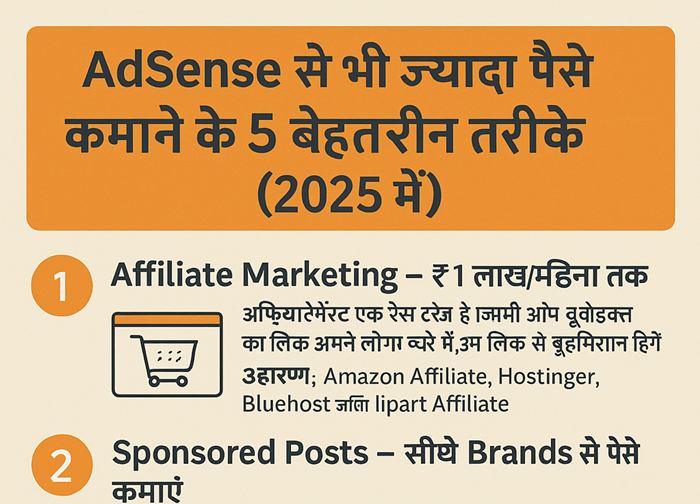Dubai vs USA: Which Has Better Job Opportunities in 2025?
Discover Dubai vs USA job opportunities in 2025: Compare unemployment rates (1.9% vs 4.3%), top sectors like tech & finance, tax-free salaries in Dubai, easy Golden Visas vs H-1B challenges, and 20% lower costs. Which offers better careers for expats?
In the ever-evolving global job landscape of 2025, professionals worldwide are weighing their options between powerhouse economies like the United States and the dynamic hub of Dubai. Whether you’re a tech whiz eyeing Silicon Valley’s innovations or a finance expert dreaming of tax-free earnings in the UAE, the debate on Dubai vs USA job opportunities is hotter than ever. With the USA boasting a massive, diverse economy and Dubai emerging as a magnet for expats through aggressive diversification, which destination truly offers superior career prospects? This comprehensive guide dives deep into unemployment rates, top sectors, salary benchmarks, visa processes, cost of living, and work-life balance to help you decide. If you’re searching for “best job markets 2025” or “Dubai vs USA careers,” read on for insights backed by the latest data to fuel your next big move.
As of October 2025, the global economy is navigating post-pandemic recovery, AI disruptions, and geopolitical shifts, making informed choices crucial. The USA, with its established infrastructure and innovation ecosystem, continues to attract talent, while Dubai’s zero-income-tax policy and futuristic vision—think Expo 2020 legacies and NEOM-inspired projects—position it as a rising star. But which one edges out for better job opportunities in Dubai vs USA? Spoiler: It depends on your field, lifestyle, and long-term goals. Let’s break it down step by step.

Overview of the USA Job Market in 2025: Stability Meets Selective Growth
The United States job market in 2025 remains a behemoth, employing over 160 million workers and driving the world’s largest economy. According to the Bureau of Labor Statistics (BLS), total employment is projected to grow by 5.2 million jobs from 2024 to 2034, with healthcare and social assistance leading the charge due to an aging population and ongoing demand for medical services. However, the pace has slowed compared to the roaring 2020s recovery. In August 2025, the unemployment rate climbed to 4.3%, a near four-year high, signaling a “stall speed” in labor market momentum amid high interest rates and AI-induced role shifts. Earlier in the year, it hovered around 4.2% in July, with 221,000 more unemployed individuals than the prior month.
Despite these headwinds, positives abound. Job postings are still above pre-pandemic levels, unemployment remains historically low, and wage growth outpaces inflation, providing a buffer for workers. Indeed’s 2025 US Jobs & Hiring Trends Report highlights resilient hiring in tech and healthcare, though 20% of companies plan to slow recruitment due to economic uncertainty. Top cities like Scottsdale, Arizona, shine with ultra-low unemployment (under 3%) and high median household incomes, making them hotspots for remote and hybrid roles.
For job seekers, the USA offers unparalleled diversity: from Wall Street finance to Hollywood entertainment. Fastest-growing occupations include data scientists (34% growth, median $112,590 salary) and information security analysts (29% growth), fueled by cybersecurity threats and big data booms. Yet, challenges like regional disparities—think rust belt vs. Sun Belt—and intense competition mean networking via LinkedIn or alumni events is key. If you’re in STEM or creative fields, the USA’s ecosystem, with hubs like Austin for tech or Boston for biotech, provides fertile ground for advancement. However, with hiring slowing and initial claims low but revisions negative, 2025 feels like a market favoring the skilled and adaptable.
In essence, the USA job market in 2025 is stable but selective—ideal for those with specialized skills who thrive in a high-pressure, opportunity-rich environment. Entry-level roles may face longer searches, but mid-to-senior positions in growth sectors promise robust trajectories.
Overview of the Dubai Job Market in 2025: Boomtown for Expats and Innovators
Contrastingly, Dubai’s job market in 2025 is a turbocharged engine of growth, with the UAE overall hitting an all-time high of 9.4 million workers and an enviably low unemployment rate of 1.9%—down from 2.1% in 2023. Forecasts peg it at 2.15% to 3.10% for the year, underscoring a resilient economy buoyed by diversification beyond oil. Employment rates stand at 76.42%, and 67% of Gulf employers, including Dubai firms, plan headcount expansions, per Qureos’ hiring guide.
Dubai’s appeal lies in its expat-heavy workforce (over 80% foreign talent) and strategic pivot to non-oil sectors. The city’s 2025 agenda, aligned with UAE Vision 2031, emphasizes sustainability and tech, creating a fertile bed for roles in renewable energy and AI. Top hiring sectors include technology (e.g., fintech and blockchain), finance (with Dubai International Financial Centre as a global node), healthcare (expanding with medical tourism), construction (mega-projects like Dubai Creek Harbour), logistics (Jebel Ali Port expansions), and emerging fields like aerospace and FMCG. Labor trends show a transformation via digital skills demand, with the UAE maintaining low unemployment through influxes of skilled migrants.
Salaries are competitive and tax-free, a massive draw. Finance pros in Dubai and Abu Dhabi command top pay, often outpacing regional averages, while tech roles see 10-15% hikes year-over-year. Platforms like Bayt.com and LinkedIn buzz with openings, but beware: the market favors multilingual, culturally agile candidates. For Indians, Europeans, or Americans, Dubai’s visa reforms make entry smoother than ever.
Overall, Dubai’s 2025 job scene is explosive—perfect for ambitious expats seeking rapid career leaps in a multicultural melting pot. It’s less about volume and more about velocity: jobs fill fast, but so do opportunities for entrepreneurship.
Key Sectors Comparison: Where the Action Is in Dubai vs USA
When pitting Dubai vs USA job opportunities by sector, the USA’s breadth clashes with Dubai’s targeted intensity. In tech, the USA dominates with giants like Google and Meta in Silicon Valley, offering roles in AI/ML with median salaries around $150,000+. Growth here is explosive, but competition is fierce—think H-1B lotteries. Dubai counters with Dubai Internet City, attracting startups in blockchain and e-commerce; salaries hit AED 300,000-500,000 ($82,000-$136,000) tax-free, plus perks like housing allowances.
Finance tells a similar tale: Wall Street’s bulge-bracket banks pay $200,000+ for analysts, but with 30-40% taxes eroding take-home. Dubai’s DIFC, however, lures with Islamic finance niches and zero tax, where senior roles exceed AED 1 million ($272,000). Healthcare booms in both: USA’s projected 1.8 million new jobs by 2034 vs. Dubai’s medical city expansions for 500,000+ roles.
Emerging sectors tip toward Dubai: Renewables (Masdar initiatives) and logistics (post-Expo trade hubs) outpace USA’s slower green transitions. Construction? Dubai’s skyline evolves with 20% annual project growth, vs. USA’s infrastructure bill-fueled but bureaucratic builds. For creatives or educators, USA edges with Hollywood and Ivy Leagues; Dubai shines in hospitality and edtech.
Verdict: USA for depth in legacy sectors; Dubai for agility in future-proof ones. Tailor your search to “Dubai tech jobs 2025” or “USA healthcare careers” for targeted wins.
Unemployment Rates and Job Growth: Numbers Don’t Lie
Raw stats underscore the edge: Dubai’s 1.9-3.1% unemployment dwarfs USA’s 4.2-4.3%, making the UAE a haven for quick placements. Job growth? USA’s 5.2 million over a decade translates to ~520,000 annually, but 2025 sees slowdowns with negative payroll revisions. Dubai, with 9.4 million workers and rising, adds thousands monthly via diversification.
For expats, this means shorter job hunts in Dubai (average 2-3 months) vs. USA’s 3-6 for skilled roles. Yet, USA’s sheer scale—15 million openings yearly—offsets higher friction.
Salary Expectations: Dubai vs USA – Take-Home Triumphs
Salaries are where Dubai dazzles. A $100,000 US base salary nets ~$65,000 after taxes; in Dubai, AED 367,000 (~$100,000) is fully yours. Tech managers earn $120,000+ in USA vs. AED 500,000 ($136,000) tax-free in Dubai. Finance peaks at $250,000 USA vs. AED 800,000+ Dubai.
But USA offers stock options and 401(k)s; Dubai counters with end-of-service gratuity and flights home. For a Bengaluru techie, Dubai’s tax-free allure often trumps USA’s higher gross but netted pay. Bottom line: Dubai maximizes disposable income for savings or luxuries.
Work Visas and Immigration: Barriers to Entry
USA’s H-1B visa is a lottery nightmare—capped at 85,000, with 2025 approvals down 10% due to scrutiny. Processing: 6-12 months, costs $5,000+. Dubai’s Golden Visa? A game-changer: 5-10 year residency for skilled pros, investors, or grads—fast-tracked in weeks, no sponsor needed post-approval. UAE’s bureaucracy is minimal vs. USA’s endless forms.
For Americans in Dubai, it’s seamless; reverse for Emiratis tougher. Dubai wins for ease in Dubai vs USA work visas 2025.
Cost of Living Impact: Affordability Amplifies Opportunities
Dubai’s cost of living is 17-22% lower than USA’s average ($2,101 vs. $2,516 monthly for one). Rent in Dubai: AED 80,000/year ($22,000) for a 1-bed vs. $2,000/month ($24,000) in Miami. Groceries and transport? 20-30% cheaper in Dubai, though luxury temptations add up.
USA varies wildly: NYC 50% pricier than Dubai; Midwest affordable. Tax-free Dubai stretches salaries further, boosting job appeal for expats.
Work Culture and Quality of Life: Beyond the Paycheck
USA’s hustle culture means 40-50 hour weeks, minimal vacation (10-15 days), but robust labor rights. Dubai? 48-hour weeks, but 30+ vacation days, family focus, and safety (world’s safest city). Multicultural Dubai offers adventure; USA, depth in experiences.
For families, USA’s education edges; singles love Dubai’s vibe.
Pros and Cons: A Balanced Scorecard
USA Pros: Innovation hubs, career mobility, diverse industries. Cons: High taxes, visa hurdles, uneven growth.
Dubai Pros: Low unemployment, tax-free pay, easy visas, expat perks. Cons: Hot climate, contract-based jobs, cultural adjustments.
| Factor | USA | Dubai |
|---|---|---|
| Unemployment | 4.3% | 1.9% |
| Avg. Salary (Tech) | $120K (taxed) | $110K (tax-free) |
| Visa Ease | Complex | Streamlined |
| Cost of Living | Higher | 20% Lower |
| Growth Sectors | Healthcare, Tech | Renewables, Finance |
Conclusion: Your Career Compass for 2025
So, Dubai vs USA: which has better job opportunities? For rapid, tax-optimized growth in emerging fields, Dubai reigns supreme in 2025—its low barriers and high take-home make it a launchpad for global pros. The USA, however, suits those craving depth, stability, and innovation in established sectors, despite fiercer competition. Ultimately, align with your priorities: adventure abroad or rooted ambition? Whichever you choose, platforms like Indeed (USA) or Bayt (Dubai) are your starting points. Ready to relocate? Share your thoughts below—what’s your 2025 job hunt strategy?




